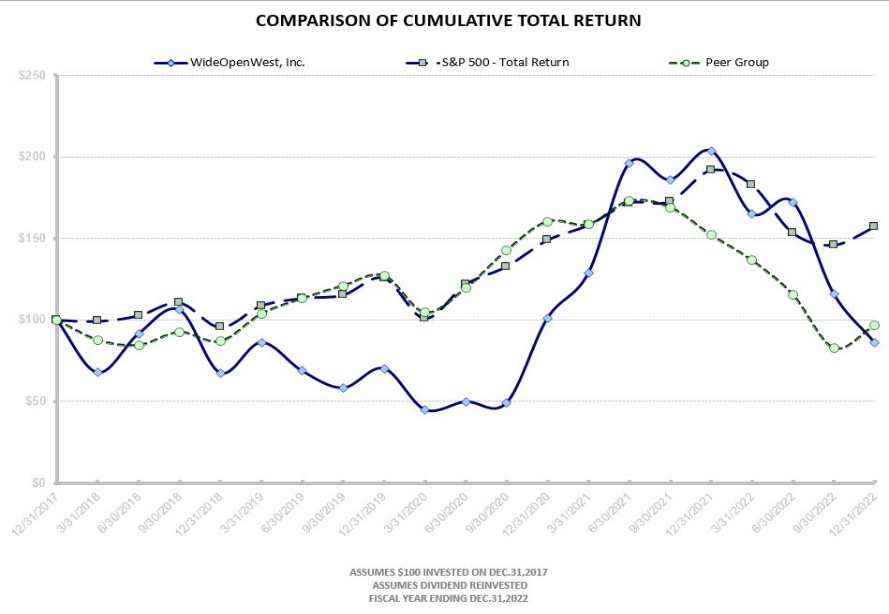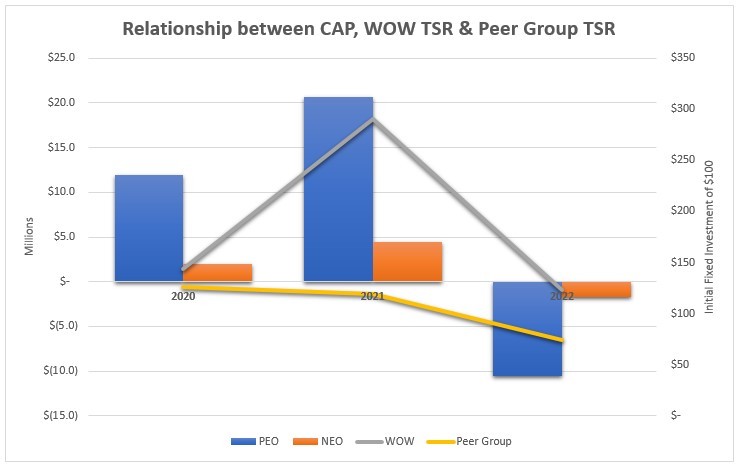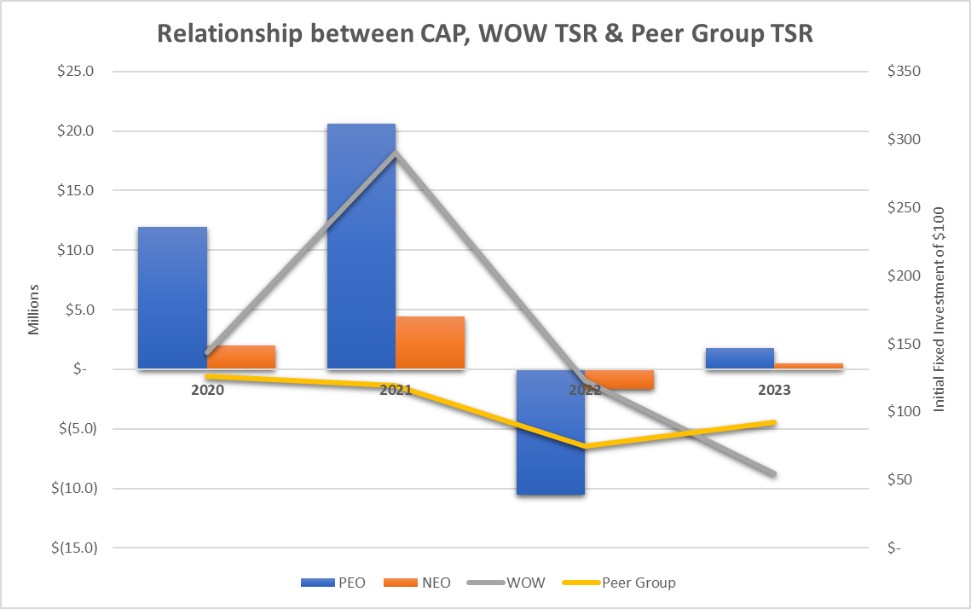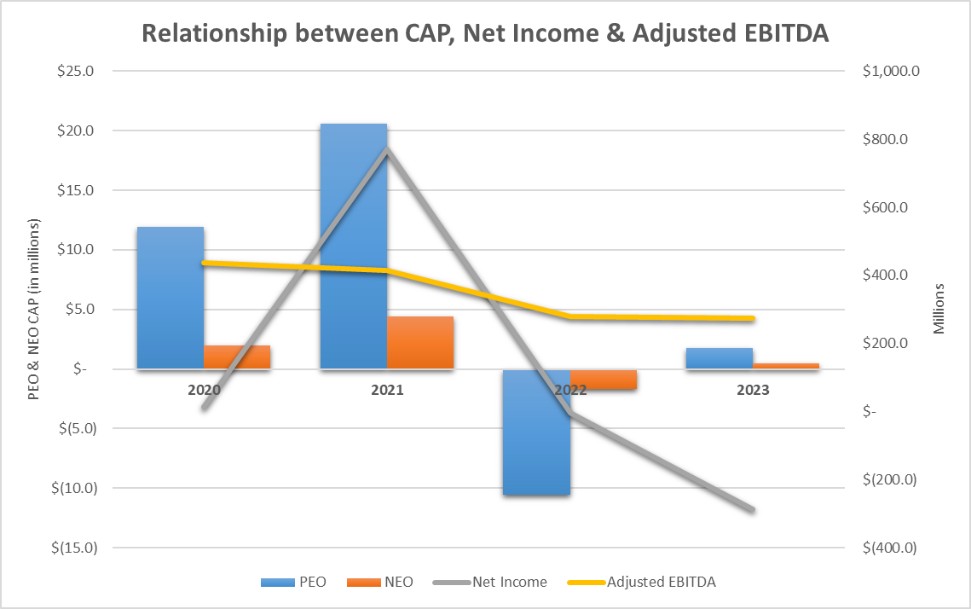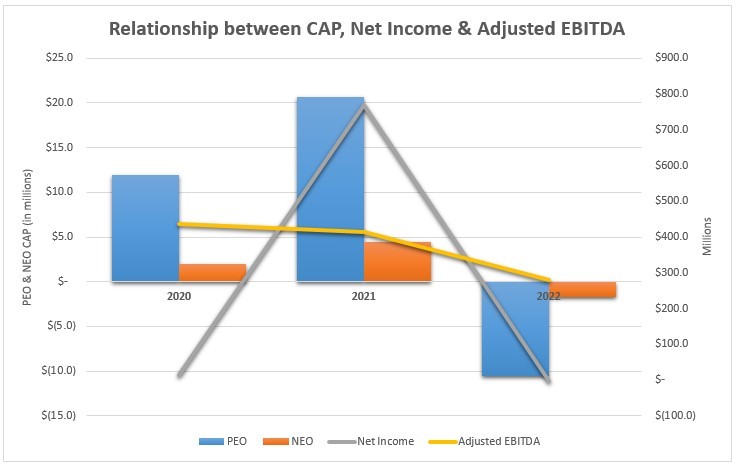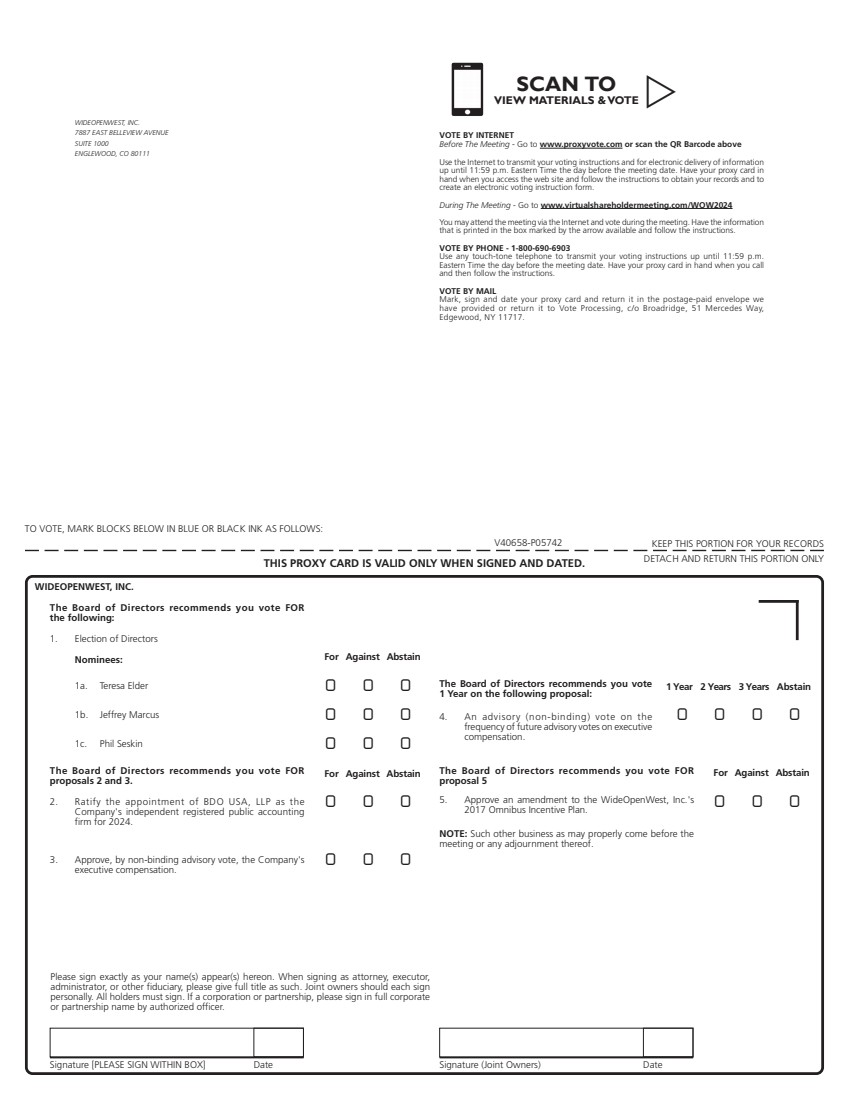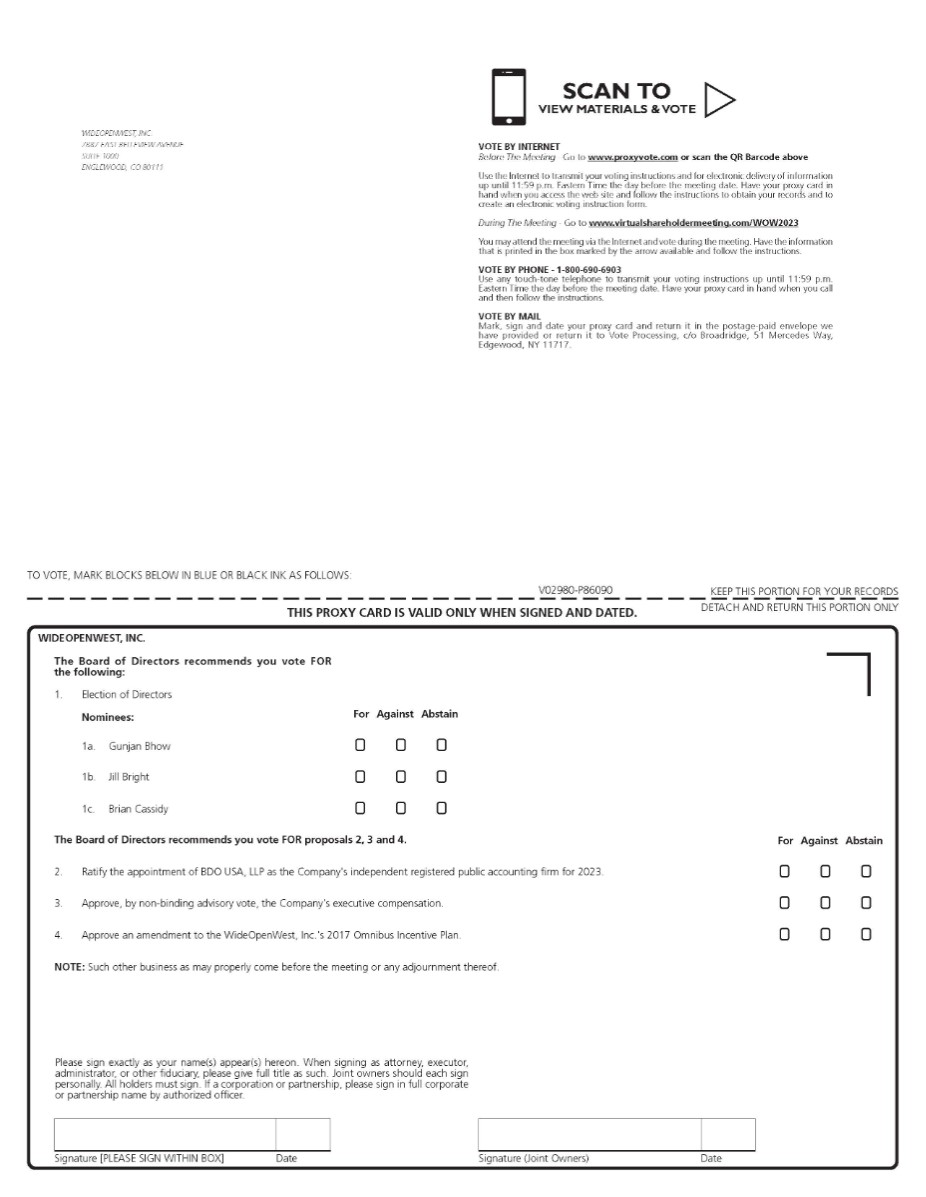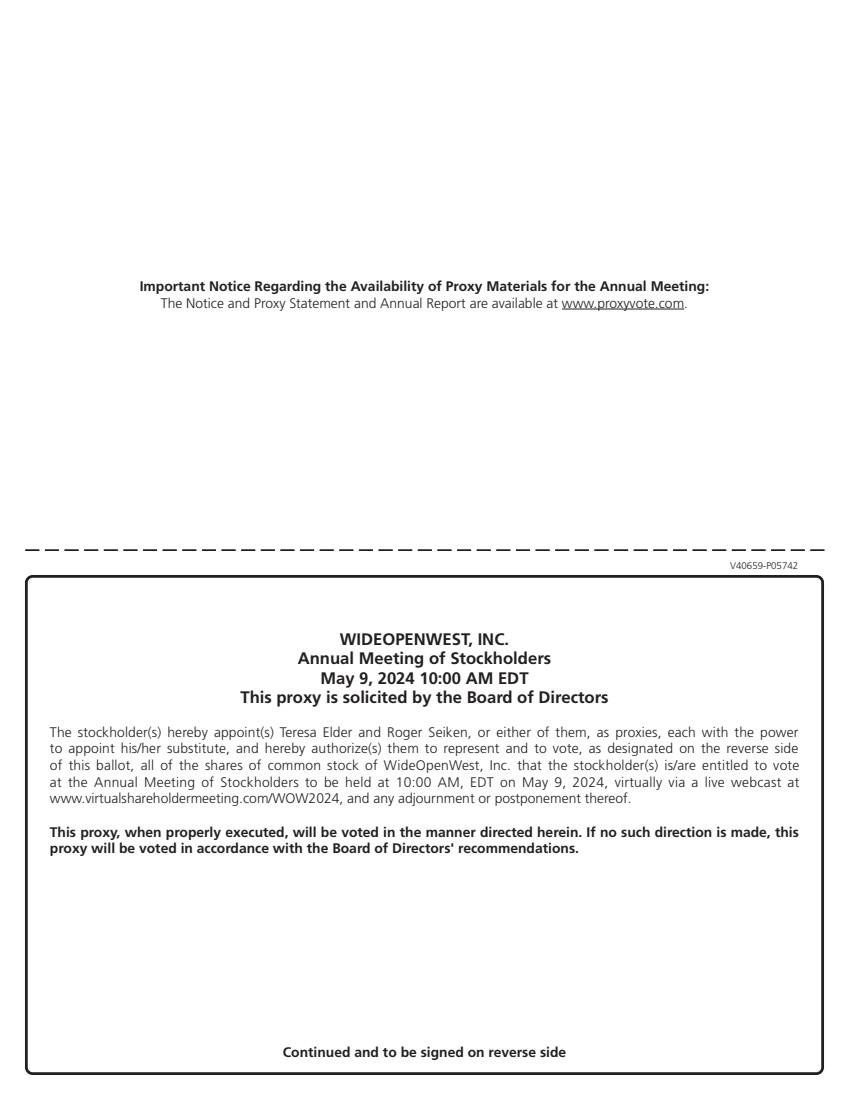SECTION 16(A) BENEFICIAL OWNERSHIP REPORTING COMPLIANCE
Section 16(a) of the Exchange Act, requires the Company’s directors, executive officers and persons who beneficially own more than 10 percent of the Company’s common stock (collectively, “Reporting Persons”) to file with the SEC initial reports of ownership and changes in ownership of the Company’s common stock.
Delinquent Section 16(a) Reports
Based solely on its review of the copies of such reports filed with the SEC or written representations from certain Reporting Persons that no other reports were required, the Company believes that during its fiscal year ended December 31, 20222023 all filing requirements applicable to the Reporting Persons were timely met, except that Mr. McMillinthe following Form 4s were filed one late due to administrative oversight: a Form 4 to report one transactionfor Crestview Partners III GP, L.P. filed on October 4, 2022January 10, 2023 for a withholding eventgrant of 6,785 shares of common stock that occurred on MayJanuary 3, 2023, a Form 4 2022. In addition, in early 2022 the Company discovered that certainfor John Rego filed on July 5, 2023 for 17,021 shares withheld upon vesting of previously reported equity awards to executive officers had not been reported on Form 4s upon the relevant vesting events in prior fiscal years. Accordingly, in March of 2022, Form 4s reporting such withholding were filed to report the withheld shares as follows: for Teresa Elder 12,406, 29,623, 12,406, 29,833, 28,264, 59,168, 45,192, 42,816, and 18,794 sharescommon stock which were withheld on December 17, 2018, March 25, 2019, December 16, 2019, March 16, 2020, March 23, 2020, March 12, 2021, March 15, 2021, March 23, 2021,June 30, 2023 and December 15, 2021, respectively; for John Rego 18,115 shares which were withheld on July 1, 2021; for Donald Martin 5,919, 2.033, and 9,036 shares which were withheld on March 25, 2019, July 1, 2019, and March 23, 2021, respectively;a Form 4 for Henry Hryckiewicz 3,849, 5,813, and 3,563filed on October 13, 2023 for a sale of 8,000 shares which were withheld on Februaryof common stock that occurred between September 1, 2021, March 12, 2021, and February 1, 2022, respectively; for Bill Case 1,003, 1,053, 1,726, 848, 725, 1,087, 1,078, 5,356, 1,721, 846, 1,807, and 1,075 shares which were withheld on May 2, 2019, March 16, 2020, March 23, 2020, May 1, 2020, May 4, 2020, October 1, 2020, March 12, 2021, March 15, 2021, March 23, 2021, May 3, 2021,2023 and October 1, 2021, respectively; for David Brunick 2,893, 5,434, 2,940, 7,883, 5,419, and 4,292 shares which were withheld on March 25, 2019, March 16, 2020, March 23, 2020, March 12, 2021, March 15, 2021, and March 23, 2021, respectively; and for Don Schena 2,313, 5,586, 2,313, 8,104, 5,665, and 3,504 shares which were withheld on September 3, 2019, March 16, 2020, September 1, 2020, March 12, 2021, March 15, 2021, and September 1, 2021, respectively.2, 2023.
OWNERSHIP OF CERTAIN BENEFICIAL OWNERS AND MANAGEMENT
The following table shows information about the beneficial ownership of our common stock, as of March 17, 2023,15, 2024, by:
| ● | each person known by us to beneficially own 5% or more of our outstanding common stock; |
| ● | each of our directors and named executive officers; and |
| ● | all of our directors and executive officers as a group. |
For further information regarding material transactions between us and certain of our stockholders, see “Certain Relationships and Related Party Transactions.”
